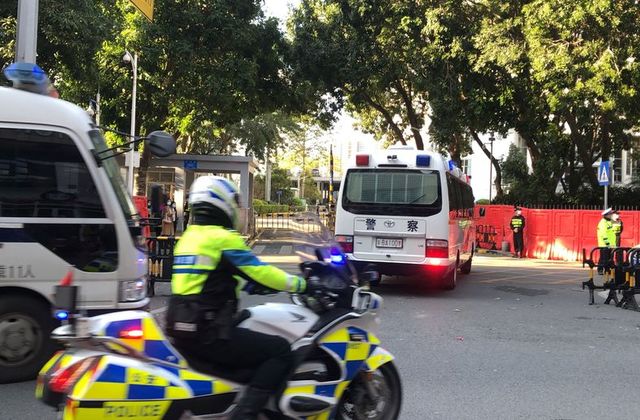
(Reuters) – A Chinese court sentenced 10 Hong Kong activists to between seven months and three years in jail on Wednesday for illegally crossing the border, in a case that has drawn international attention and concern over the defendants’ treatment.
The group had all faced charges in Hong Kong over anti-government protests in the Chinese-ruled city and have been held virtually incommunicado in a mainland prison since their boat was intercepted on Aug. 23 after leaving Hong Kong, allegedly en route to the democratic island of Taiwan.
The court in the city of Shenzhen, which borders the semi-autonomous former British colony of Hong Kong, found eight of the defendants guilty of the illegal crossing and sentenced them to seven months in jail and a 10,000 yuan ($1,533) fine.
Tang Kai-Yin, 31, and Quinn Moon, 33, were found guilty of organising an illegal border crossing and sentenced to three years and two years, respectively, with fines of 20,000 and 15,000 yuan.
All 10 had pleaded guilty to their crimes, the court said. They all appeared in court for the verdicts and were taken away afterwards.
Two minors who were travelling on the boat and who had pleaded guilty to illegal border crossing would not be charged, the prosecutor said.
Earlier, media reported that the youngest of the 12 activists – 11 males and one female aged 16-33 – would be transferred to Hong Kong authorities.
The scene outside the court was quiet, with few media present and no diplomatic representatives after they were denied access to a hearing for the 10 on Monday.
Police checked media accreditation, asked reporters if they had arranged interviews and urged them not to linger in the vicinity due to the coronavirus.
Self-ruled Taiwan is a popular destination for Hong Kong pro-democracy activists since Beijing imposed a national security law on its freest city in June that critics say is aimed at stamping out dissent and curbing freedoms.
Hong Kong returned to Chinese rule in 1997 with the guarantee of freedoms not seen on the mainland, including freedom of speech and assembly. Democracy activists complain that Communist Party rulers in Beijing are whittling away at those freedoms, a charge Beijing rejects.






